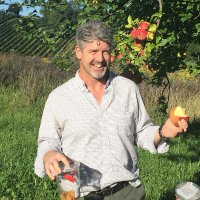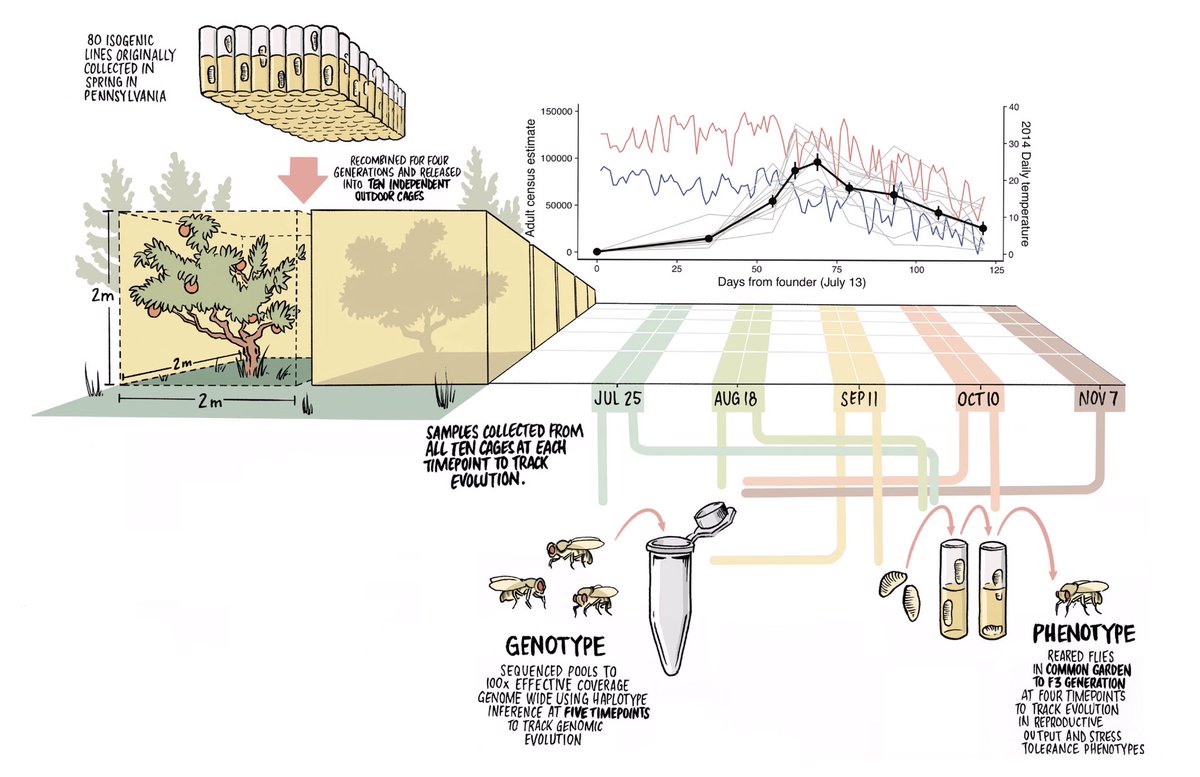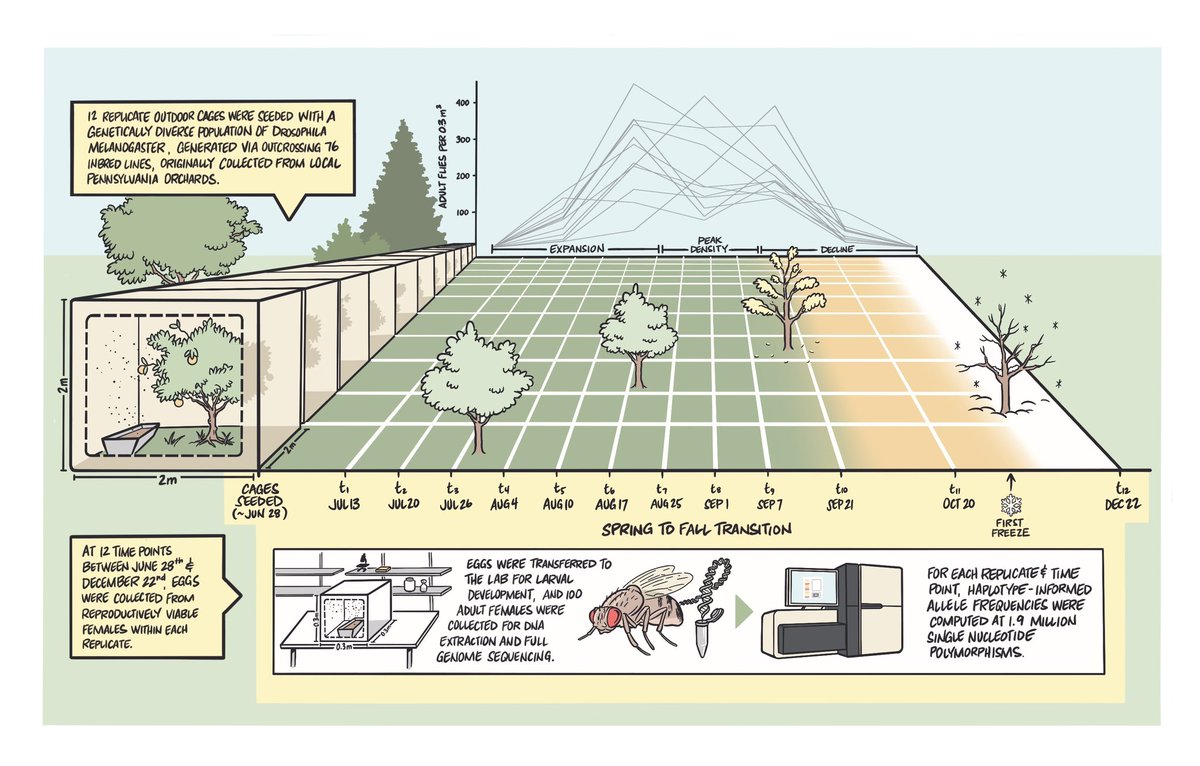
Paul Schmidt
@paulrschmidt
evolutionary biologist, Patricia M. Williams Term Chair, @PennBiology, @pennathletics faculty athletics representative. He/Him.
ID: 1386853965237735424
http://paulschmidt.bio.upenn.edu 27-04-2021 01:25:38
30 Tweet
273 Followers
112 Following

This paper by Seth Rudman sharon greenblum Subhash Rajpurohit .. Dmitri Petrov Paul Schmidt is the coolest Drosophila experiment ever! 🪰🍎🧬 they find repeatable and large changes in allele frequency within a year likely due to selection shifting among several oligogenic in seasons 👇



I got to sling ink for Seth Rudman and Paul Schmidt on their seminal work demonstrating rapid evolution in a drosophila field experiment. It was a thrill to illustrate this one, and even more fun to read! doi.org/10.1101/2021.0… #sciart #drosophila #evolution


A well-written article about microbiomes driving host evolution including some mention of work we (sharon greenblum John Chaston Paul Schmidt) did doi.org/10.1073/pnas.1…

Our results suggest that fluctuating selection is an important evolutionary force in Drosophila. This study is a community effort, with samples from 19 different labs Paul Schmidt, wrapped up by brilliant collaborators Alan Bergland Paul Schmidt Dmitri Petrov


Out today in Science Magazine we show how populations adaptively track environmental change using a field experiment: science.org/doi/10.1126/sc…

Composed of a replicated experiment, repeated phenotypic assays to measure evolutionary rates, and many genomic analyses sharon greenblum Subhash Rajpurohit Dmitri Petrov and Paul Schmidt were central to the study.





I truly could not have asked for a better team to work on this with, from start to finish. Big big ups to Seth Rudman Susanne Tilk, PhD Dmitri Petrov and Paul Schmidt (and Tuya!)

Think evolution is a slow, gradual process? Tell that to fruit flies. Penn Biology researchers led by Paul Schmidt documented changes to 60% of the fly's genome during a four-month-long field experiment Pennovation Works penntoday.upenn.edu/news/rapid-ada…

Out now!!! @MarkCBitter1, Dmitri Petrov, and Paul Schmidt used a high-resolution time series to show finely populations can adaptively track fluctuating environments, and how this fine-scale detects fluctuation that would be missed with coarser sampling time frames.

